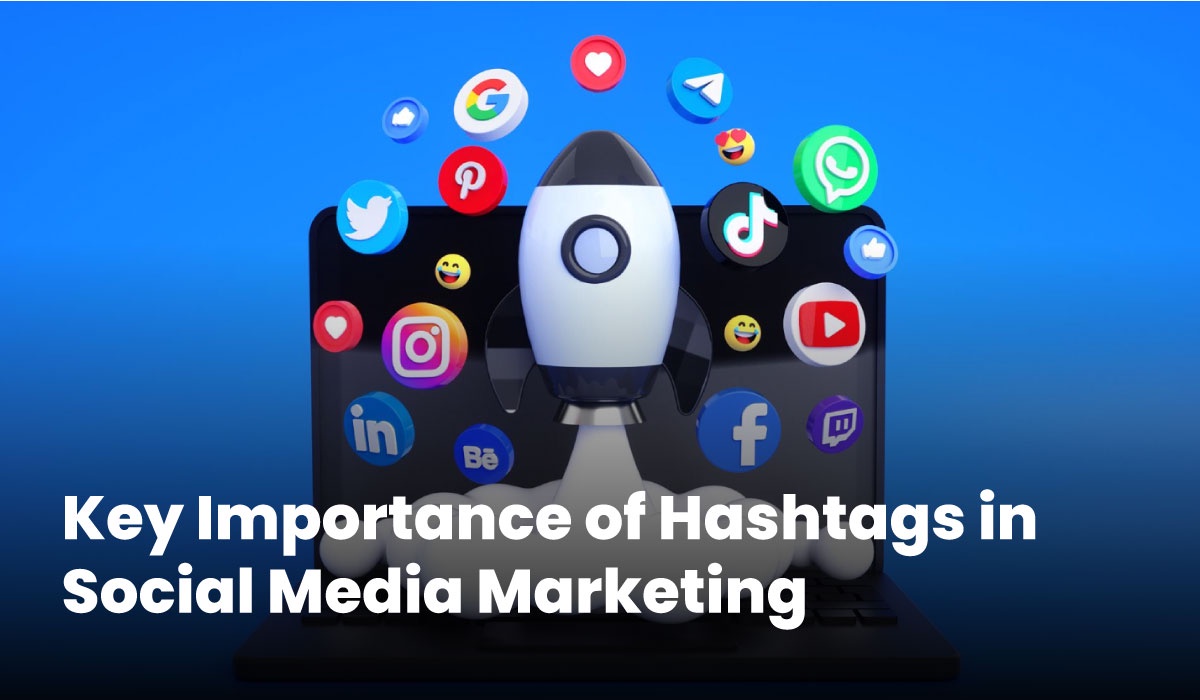In the ever-evolving world of social media marketing, staying ahead of the curve is essential for businesses and individuals alike. One key element that has revolutionized the way content is discovered and shared across social platforms is the humble hashtag. From its early days on Twitter to its ubiquitous presence on platforms like Instagram, Facebook, and LinkedIn, hashtags have become an indispensable tool for marketers. In this blog post, we will explore the key importance of hashtags in social media marketing and how they can elevate your brand's visibility, engagement, and reach.
What Are Hashtags?
Before we dive into their importance, let's clarify what hashtags are. A hashtag is a word or phrase preceded by the '#' symbol, without spaces or special characters. When you use a hashtag in your social media post, it becomes a clickable link, allowing users to discover and explore content related to that specific hashtag.
1. Increased Visibility and Discoverability
The primary role of hashtags in social media marketing is to increase the visibility and discoverability of your content. By adding relevant hashtags to your posts, you make it easier for users interested in those topics to find your content, even if they don't follow your account.
For example, if you run a fashion boutique and use the hashtag #SummerFashion in your Instagram post showcasing the latest summer collection, anyone searching for or following that hashtag is more likely to come across your post. This extended reach can attract new followers, potential customers, and brand enthusiasts.
2. Targeted Audience Engagement
Hashtags also play a crucial role in helping you connect with your target audience. By using specific, niche-related hashtags, you can ensure that your content reaches people who are genuinely interested in your industry, products, or services.
For instance, if you manage a fitness blog, using hashtags like #FitnessTips, #HealthyLiving, or #WorkoutMotivation will help you engage with an audience passionate about fitness. This targeted approach not only boosts engagement but also increases the likelihood of building a dedicated and loyal following.
3. Trend Participation and Virality
Hashtags are often used to join ongoing conversations and trending topics on social media platforms. When you tap into trending hashtags that are relevant to your content, you can potentially ride the wave of virality.
However, it's essential to use trending hashtags judiciously and authentically. Only use them when your content genuinely aligns with the topic to avoid coming across as opportunistic or inauthentic. Virality can significantly increase your content's reach, but it's equally important to maintain the trust of your audience, opined one of the best social media marketing service providers in Bangalore - Webomindapps.
4. Brand and Campaign Recognition
Hashtags also serve as a branding tool, allowing you to create a unique identity for your brand or marketing campaigns. By developing and consistently using branded hashtags, you make it easier for your audience to identify and engage with your content.
For example, if Coca-Cola is running a summer campaign, they might use the branded hashtag #CokeSummerFun. This not only promotes the campaign but also encourages user-generated content when customers use the same hashtag while sharing their summer experiences with Coca-Cola products.
5. Content Curation and Organization
Hashtags help organize and categorize content on social media platforms. When users click on a hashtag, they can explore a feed of posts related to that topic. This feature is particularly useful for organizing and curating user-generated content or content related to specific events, products, or campaigns.
Event organizers, for instance, can encourage attendees to use a designated event hashtag. This creates a central hub where attendees can share their experiences, photos, and insights, making it easier for others to follow along and engage.
6. Competitive Analysis
Hashtags aren't just beneficial for your content; they also provide valuable insights into your competitors' strategies. By monitoring the hashtags your competitors use and analyzing their performance, you can gain a better understanding of their target audience and content strategy.
This information can inform your own hashtag choices and content strategy, allowing you to stand out and differentiate your brand in a competitive landscape.
7. Measurement and Analytics
Most social media platforms offer analytics tools that allow you to track the performance of your posts, including the reach and engagement generated by specific hashtags. These insights are invaluable for refining your social media marketing strategy.
You can identify which hashtags are driving the most engagement, which times of day are most effective for certain hashtags, and how your hashtag usage impacts your overall reach and impressions. Armed with this data, you can continually optimize your hashtag strategy for better results.
Conclusion
In the world of social media marketing, hashtags are far more than just trendy symbols; they are powerful tools for boosting visibility, engagement, and brand recognition. By strategically incorporating relevant and trending hashtags into your content, you can reach a broader audience, connect with your target market, and grow business & the impact of your marketing efforts.
However, it's essential to approach hashtag usage with care and authenticity. Overloading your posts with irrelevant or excessive hashtags can dilute your message and turn off potential followers. Instead, focus on using hashtags strategically, aiming for quality over quantity.
As social media platforms continue to evolve and new trends emerge, staying updated on hashtag best practices and trends is crucial. Incorporating hashtags effectively into your social media marketing strategy can help your brand remain visible, relevant, and engaging in an ever-changing digital landscape.


No comments yet